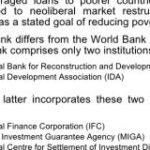UNGA adopts resolution calling for global solidarity against COVID-19

The United Nations General Assembly has unanimously adopted a resolution on COVID-19, calling for intensified international cooperation to defeat the pandemic.
Co-sponsored by 188 nations including India, the resolution titled Global solidarity to fight the coronavirus disease 2019 (COVID-19) is first such document on the global pandemic to be adopted by the world organization.
The resolution said the General Assembly notes with great concern the threat to human health, safety and well-being caused by the disease. It highlighted the unprecedented effects of the pandemic, including the severe disruption to societies, economies, global travel and commerce, and the devastating impact on the livelihood of people.
The resolution called for intensified international cooperation in exchanging information, scientific knowledge and best practices and applying guidelines recommended by the World Health Organization.
LEARNING WITH TIMES
Coronavirus disease (COVID-19) is an infectious disease caused by a newly discovered coronavirus,are zoonotic, meaning they are transmitted between animals and people. The COVID-19 virus spreads primarily through droplets of saliva or discharge from the nose when an infected person coughs or sneezes, so it’s important that you also practice respiratory etiquette (for example, by coughing into a flexed elbow). The best way to prevent and slow down transmission, Protect yourself and others from infection by washing your hands or using an alcohol based rub frequently and not touching your face.At this time, there are no specific vaccines or treatments for COVID-19.
Antonio Guterres :Secretary-General of the United Nations.
FACTS AND FIGURES
The United Nations(UN) is an international organization founded in 24 October,1945 committed to maintaining international peace and security, developing friendly relations among nations and promoting social progress, better living standards and human rights. It provide a forum for its 193 Member States to express their views, through the General Assembly, the Security Council, the Economic and Social Council and other bodies and committees. Arabic, Chinese, English, French, Russian and Spanish are the UN official languages.
The General Assembly is the main deliberative organ of the UN and is composed of representatives of all Member States. The work of the United Nations year-round derives largely from the mandates given by the General Assembly.
The Assembly has no binding votes or veto powers like the UN Security Council.Among the world’s 196 countries, 193 are UN member states and three nations- Palestine, the Vatican City and Taiwan are not a part of the international organization as their country status is not recognized globally due to political and religious reasons.
Under the Charter, the Security Council has primary responsibility for the maintenance of international peace and security. It has 15 Members, and each Member has one vote. Under the Charter, all Member States are obligated to comply with Council decisions. It has five permanent members, China, France, Russian Federation, the United Kingdom, and the United States, with veto power and ten non-permanent members, elected by the General Assembly for a two-year term.
The Economic and Social Council (ECOSOC), established by the UN Charter, is the principal organ to coordinate the economic, social and related work of the United Nations and the specialized agencies and institutions. Voting in the Council is by simple majority; each member has one vote.
The Trusteeship Council as one of the main organs of the United Nations and assigned to it the task of supervising the administration of Trust Territories placed under the Trusteeship System. Major goals of the System were to promote the advancement of the inhabitants of Trust Territories and their progressive development towards self-government or independence. The Trusteeship Council is made up of the five permanent members of the Security Council –China, France, Russian Federation, United Kingdom and United States. The aims of the Trusteeship System have been fulfilled to such an extent that all Trust Territories have attained self-government or independence, either as separate States or by joining neighbouring independent countries. The Trusteeship Council suspended operation on 1 November 1994, with the independence of Palau, the last remaining United Nations trust territory, on 1 October 1994. By a resolution adopted on 25 May 1994, the Council amended its rules of procedure to drop the obligation to meet annually and agreed to meet as occasion required — by its decision or the decision of its President, or at the request of a majority of its members or the General Assembly or the Security Council.
The International Court of Justice (ICJ) is the principal judicial organ of the United Nations (UN). It was established in June 1945 by the Charter of the United Nations and began work in April 1946.The seat of the Court is at the Peace Palace in The Hague (Netherlands). Of the six principal organs of the United Nations, it is the only one not located in New York (United States of America).
The Court’s role is to settle, in accordance with international law, legal disputes submitted to it by States and to give advisory opinions on legal questions referred to it by authorized United Nations organs and specialized agencies. The Court is composed of 15 judges, who are elected for terms of office of nine years by the United Nations General Assembly and the Security Council. It is assisted by a Registry, its administrative organ. Its official languages are English and French.






0 Comments